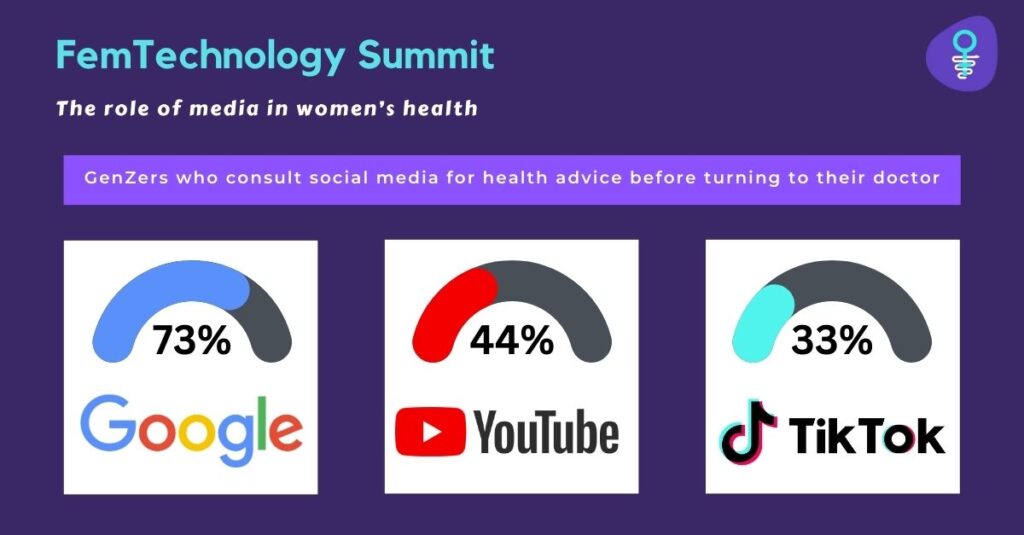
According to the Women’s Health Strategy for England, more than 84% of women responding to their survey felt that their healthcare professionals were not listening to them.
This comes at a time when (independant from the former) it’s becoming increasingly common to rely on Social Media as a source of health Information. Already 1 in 5 Americans turn to Influencers before seeking advice from a medical professional.
There are three main reasons why people tend to seek medical advice on social media:
- Accessibility
- Affordability
- Approachability
Although it might seem risky to rely on social media for information about one’s health, the new presence of social media in the health sphere creates opportunities for how we approach health interventions, medical education, health campaigns, and disease outbreak surveillance.
For example, social media can be used to disseminate health information to a wide audience quickly and efficiently. This can include information about new treatments, disease prevention strategies, and public health initiatives.Social media can also be used to educate medical professionals and students about the latest developments in medical research and practice, as well as to provide a platform for networking and collaboration.Additionally, social media can be used to mobilize communities to support health campaigns and initiatives, and to gather data on disease outbreaks to inform public health responses.
However, it is important to acknowledge that this trend also poses potential risks to patients and healthcare professionals that should not be ignored. These risks can manifest in various forms, including poor-quality information, damage to professional image, breaches of patient privacy, and legal issues. For instance, poor-quality information disseminated through social media can lead to patients being misinformed or misled, which can be detrimental to their health. Breaches of patient privacy on social media can also lead to legal issues for healthcare professionals and institutions, as well as harm to patient trust and confidence.
The Role of the Media in Women’s Health Workshop
Although the role of social media in health is an important topic for everyone, we would like to focus specifically on the role of the media in women’s health. There is a long history of women mistrusting their doctors, and we believe that exploring the opportunities and risks associated with the media’s role in women’s health can shed light on this issue.
We will be discussing the Role of Media in Women’s Health and more at the Femtechnology Summit on June 6 & 7 in Basel, Switzerland.
 We’re thrilled to announce our inspiring facilitator for the FemTechnology Summit Workshop on The Role of the Media in Women’s Health, Mitzi Krockover, MD, the Founder and CEO of Women Centered.
We’re thrilled to announce our inspiring facilitator for the FemTechnology Summit Workshop on The Role of the Media in Women’s Health, Mitzi Krockover, MD, the Founder and CEO of Women Centered.
Join us in Basel, Switzerland June 6th and 7th!
